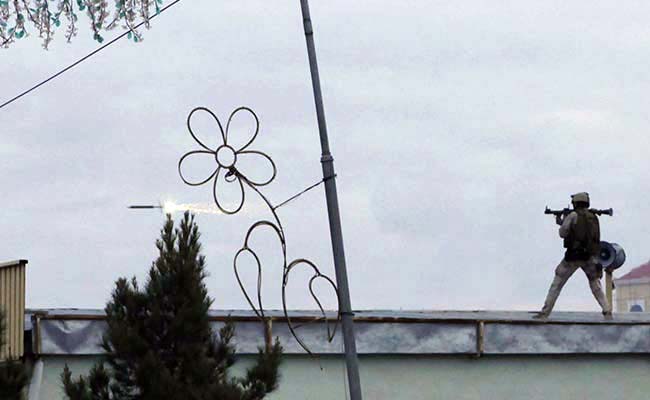There has been a sharp rise in militant attacks in the capityal Kabul in recent weeks. The insurgent groups have launched a number of bombings and suicide attacks in the city, causing many civilian casualties. Taliban have claimed responsibility for most of the attacks. The recent attacks in Kabul have sparked fresh concerns over the security situation in the country and the rise of the violence in a season when the militant groups are usually in a recess from their spring and summer offensive. The casualties of the attacks are mostly civilians, while the militant groups focus is on targeting major government and public institutions. Despite the rise of the attacks, the militants have failed to strike major assaults with high casualties from government employees or security personnel. The rise of the militant attacks in the capital is coming at a time when the Afghan government is preparing to participate and landmark four-way summit with representatives from Pakistan, China and the USA to consider resumption of peace talks with the Taliban.
The recent intensifying attacks by the Taliban clearly indicates the militants’ struggle to maintain high pressure on Afghan government as Kabul and three other major stakeholders of the Afghan peace process – Pakistan, the US and China – are planning to hold a meeting for resumption of peace negotiations between the Afghan government and the Taliban. In the previous round of peace efforts last year, the Taliban were believed to be ready for coming to table of negotiations with the Afghan government, though some members of the group were staunchly resisting against any peace negotiations with the government in Kabul as well as the United States. This time also the Taliban core leadership around Mullah Akhtar Mansoor, the new leader of the group, seems to be willing to negotiate with the Afghan government.
This is because Pakistan is believed to have influence over the Taliban faction led by Mullah Mansoor. Along the Afghan government, Pakistan is spearheading the current round of efforts for resuming talks with the Taliban leaders mostly based in the country. As Pakistan is playing a leading role in the process, the country is obviously having a role in convincing the Taliban to come to the table of negotiation with the Afghan government. On the other hand, Pakistan has assured that there will be action against those militant groups who refuse to join the talks with the Afghan government. This means that the main Taliban group is convinced to join peace talks with the government in Kabul. So, it can be concluded that the Taliban are expecting a peace process to resume, and are willing to participate in possible future talks. So, the question rises that why the Taliban are stepping up violence if they are willing to enter peace talks?
Past experiences have shown that each time there are plans for resumption of talks between the Taliban and the Afghan government – in which the Taliban are also set to participate – the group spares no efforts to mount a heightened offensive against government forces to gain military advantages on the ground. Such achievements on the battlefields help the Taliban over the table of negotiations for gaining more political and economic concessions. As plans for the four-way meeting in Islamabad are underway, the Taliban would further attempt to mount attacks against government forces. The government must be ready for a counteroffensive against the militants to repel their pre-peace talks offensives.
On the other hand, as the Taliban are unable to keep a sustained anti-government offensive in the cold season, the group obviously does not sit idle to wait for another spring to resume the summer season fighting against government forces. During the group’s winter recess from the fighting, the group will attempt to find alternative ways for maintaining the momentum of the insurgency.
The government was viewing the winter season as an opportunity to crash them as much as possible before they launch another deadly summer season fighting. The Taliban have always tried to pursue war strategies with higher efficiencies. The two-pronged war strategy of group in recent years has been to launch spectacular ground attacks on major towns and cities and targeting high-valued government installations. Among others, the ultimate aim from both war strategies is to advance the group’s propaganda war against the government and prove itself indestructible to the public.
One of the key objectives of the heightened Taliban offensive against both the government and other militant groups is to further strengthen Taliban’s monopoly over the insurgency in the country.
This is particularly important for the Taliban at a time when more militant outfits are starting to challenge Taliban’s supremacy in jihad activities in Afghanistan. The Taliban’s heightened anti-government offensive and foreign support for the group along with the government’s military actions against rival groups such as the Islamic State have helped the Taliban to build its monopoly in the country. The Taliban’s supremacy in the jihad may prove instrumental in the future for the government to make peace with various militant groups operating under the umbrella group.
However, Taliban’s supremacy over other groups fails the government to crash the warring and weak militant groups militarily.

